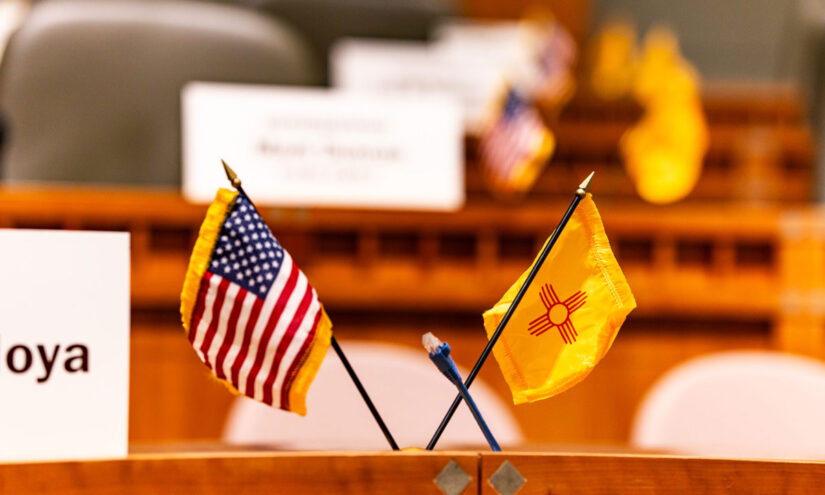Oklahoma Superintendent Ryan Walters released instructions on Wednesday for inte …
New Mexico Legislators Place Emphasis on Career Technical Instruction in Education Budget
Emma Wordsmith

Lawmakers at a joint budget session of the House and Senate education committees on Monday expressed their intention to prioritize various aspects of education, including literacy, staff shortages, attendance, pay increases, career technical education, and improving student outcomes.
Analysts from the New Mexico Legislative Education Study Committee and the Legislative Finance Committee have proposed the following funding allocations for these initiatives:
- $46.2 million for career technical education
- $25 million to increase the minimum salary for all school personnel to $30,000 per year
- $3 million for planning and designing a statewide literacy center
- $30 million in flexible funds for literacy, community schools, and innovative projects
- $15 million for the Public Education Department’s education fellows program
- $15 million for attendance programs
However, the proposed $3 million for the literacy center falls significantly short of the governor’s request for $30 million.
Arsenio Romero, the public education secretary for New Mexico, outlined plans to incorporate structured literacy into all schools in the state, aligning with Governor Michelle Lujan Grisham’s priorities for the 2024 session.
“This approach has consistently proven to be the catalyst for change that we need,” Romero stated. “When students can read confidently and effectively at their grade level, it will positively impact all other subjects they study and benefit them throughout their lives.”
In addition, Romero requested $94.5 million for increasing teacher salaries and urged legislators to enhance funding for the educator fellows program. This program offers coaching, hands-on experience, and financial support to students aspiring to become certified educators.
Lawmakers from both parties expressed strong support for career technical education, highlighting its significance in student success.
Senator William Soules (D-Las Cruces), the Chair of the Senate Education Committee, emphasized the importance of ensuring adequate funding for career technical education.
“When we have surplus funds, investing in education is the best course of action, rather than trying to cut costs or accomplish more with fewer resources. Our focus should be on allocating significant funds to meaningful programs that will make a difference,” Soules remarked.
Some legislators voiced concerns about extended school hours, particularly in smaller, rural schools. The New Mexico Public Education Department recently proposed a rule stipulating that all schools must offer a minimum of 180 instructional days, which would necessitate some schools transitioning from a four-day week to a five-day week.
Representative Candy Spence Ezzell (R-Roswell) questioned the loss of local control in such a decision, asking why the school board’s authority was being undermined by mandating increased school days from Santa Fe. She expressed her disapproval, saying, “I am appalled by what’s happening in our schools. Our schools excel when there is a lower student-to-teacher ratio. Simply adding more days will not enhance the situation.”
Ezzell also emphasized that the additional costs for fuel, meals, and utilities to accommodate an extra school day would burden smaller schools financially.
Furthermore, some lawmakers expressed concerns about making informed investments to support struggling students and meet the guidelines established in the Yazzie-Martinez ruling, a significant education reform case in New Mexico.
Representative Yanira Gurrola (D-Albuquerque) specifically highlighted the lack of funding for bilingual education in the budget proposals. Legislative analysts discovered that over 4,000 educators in New Mexico possessed bilingual certifications but were not teaching bilingual classes due to insufficient pay for their demanding workload.
Gurrola introduced House Bill 39 this session, aiming to establish pipelines between the state’s colleges, universities, and tribal colleges to bring bilingual educators into K-12 schools. She emphasized that certification alone is insufficient; successful bilingual programs require funding and resources.
“Some of the schools that have been presented as models of success have achieved this by implementing structured literacy and supplementing it with other programs that cater to the needs of diverse student populations,” Gurrola explained.
Representative Patricia Roybal Caballero (D-Albuquerque) called for improved data collection and metrics to guide investment decisions in compliance with Yazzie-Martinez and effectively support the state’s diverse student population.
“We are not at risk. We are extraordinary. Our unique language, culture, and contributions make us exceptional in the classroom,” Roybal Caballero asserted. “Others fail to understand this… We need to break away from business as usual and create something different.”



